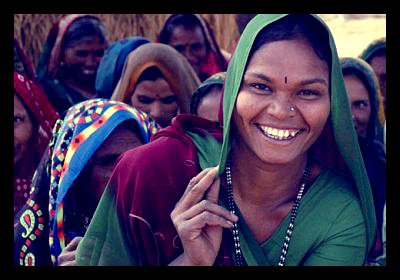Sonata Finance Puts the Power Back Into the Hands of Women

Perhaps one of the most significant elements of the fight against global poverty is the emphasis on women. Fighting against numerous disadvantages for their entire lives, women make up 70 percent of the world’s one billion most impoverished citizens. Women only earn 10 percent of the entire world’s income and own less than a percent of the world’s property. As a result, finding ways to remove these women from the grasp of poverty becomes a key component in the plan to eradicate global poverty.
Enter Sonata Finance Ltd. Based out of India, Sonata Finance has established a mission for themselves to “Identify and motivate poor women in a cost-effective way and deliver them micro finance services in an honest, timely, and efficient manner.” But what exactly does this mean?
Sonata Finance makes use of different lending approaches and programs that work to give these women the start-up capital that they need to become entrepreneurs and small business owners. Because women make up the largest portion of the world’s poor – and because women invest their income into their children and households – Sonata Finance works exclusively with these women. Their lending programs are designed to lend to either a single person or parties of 10-20 women.
The success stories of Sonata Finance include that of Sunita Desai, a 25-year-old woman who joined Sonata and took loans from them after the boat her husband used to collect sand to sell to construction companies wrecked. As a result, Sunita was able to finance a new boat. Instead of having to share a boat (and the profits) with another person, she now owns a boat – and all of the income from it goes straight to her household.
Sonata Finance, through its understanding of global poverty and finance strategies, played a key role in Sunita’s story, and is working to alleviate the burden of poverty for the world by assisting the largest poverty-stricken demographic.
– Ryan Miller
Sources: Sonata, Global Poverty Project
Photo: Aleph Journal
